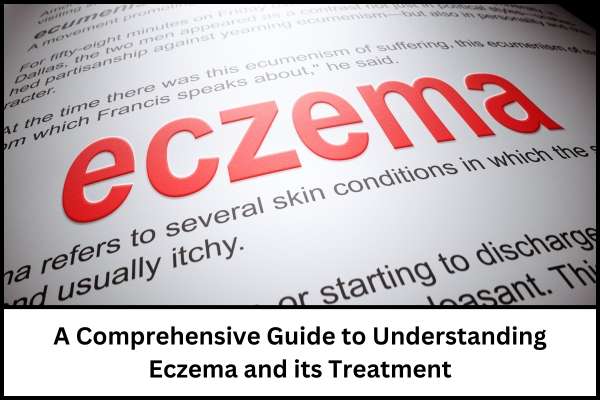
Eczema, scientifically known as atopic dermatitis, is a chronic and often perplexing skin condition affecting millions worldwide. Its impact on daily life and overall well-being underscores the importance of comprehending its intricacies for effective management. This comprehensive guide aims to unravel the mysteries surrounding eczema, offering insights into its causes, symptoms, and, most importantly, reliable treatment options.
Eczema manifests as persistent inflammation, redness, and itching, with its scientific term being atopic dermatitis. Although commonly surfacing in childhood, it can persist into adulthood, posing challenges to individuals and necessitating a deeper understanding of proper management.
While the exact origin of eczema remains elusive, it is widely believed to result from a combination of genetic predisposition and environmental factors. Compromised skin barriers, immune system dysfunction, and environmental triggers contribute to its exacerbation. Addressing these aspects is crucial for effective treatment.
Recognition involves keen observation of symptoms such as persistent itching, red or inflamed skin, and the development of dry, scaly patches. Seeking professional medical advice is vital for an accurate diagnosis and for ensuring appropriate management strategies.
Healthcare professionals employ a comprehensive approach, considering the patient's medical history, conducting physical examinations, and sometimes performing skin tests. This thorough process ensures a precise understanding of the individual's condition, guiding the development of an effective treatment plan.
A cornerstone of eczema management is the consistent use of emollients—moisturizers designed to hydrate the skin, strengthen the natural barrier, and alleviate dryness. Regular application is crucial for preventing flare-ups and maintaining skin health.
Dermatologists often prescribe topical corticosteroids for moderate to severe cases. These anti-inflammatory medications reduce redness and itching, providing much-needed relief during flare-ups. However, adherence to prescribed usage is essential to avoid potential side effects.
In certain instances, healthcare providers may recommend immunomodulators—medications that target the immune system to address the underlying causes of eczema. These can be particularly beneficial for long-term management, offering a more holistic approach to treatment.
Understanding and avoiding triggers is paramount in managing eczema effectively. Common triggers include certain foods, stress, allergens, and harsh skincare products. Identifying and minimizing exposure to these triggers can significantly reduce the frequency and severity of flare-ups.
Adopting a gentle skincare routine is essential for individuals with eczema. Using mild, fragrance-free products and avoiding hot water can prevent skin irritation and flare-ups. Additionally, moisturizing immediately after bathing helps lock in moisture, promoting overall skin health.
In conclusion, managing eczema involves a multifaceted approach, combining medical intervention with lifestyle adjustments and consistent self-care. Individuals with eczema can regain control over their skin health by incorporating emollients and targeted medications and adopting a mindful approach to triggers.
A holistic approach that considers both medical and lifestyle factors empowers those affected by eczema to navigate its challenges successfully. Seeking guidance from healthcare professionals and adhering to a personalized management plan are crucial steps toward a life with fewer eczema-related disruptions.
Warning: While this guide provides valuable insights, consulting with a healthcare professional or dermatologist for personalized advice and treatment is imperative. Every individual's situation is unique, and experienced guidance ensures the most effective and safe management of eczema.